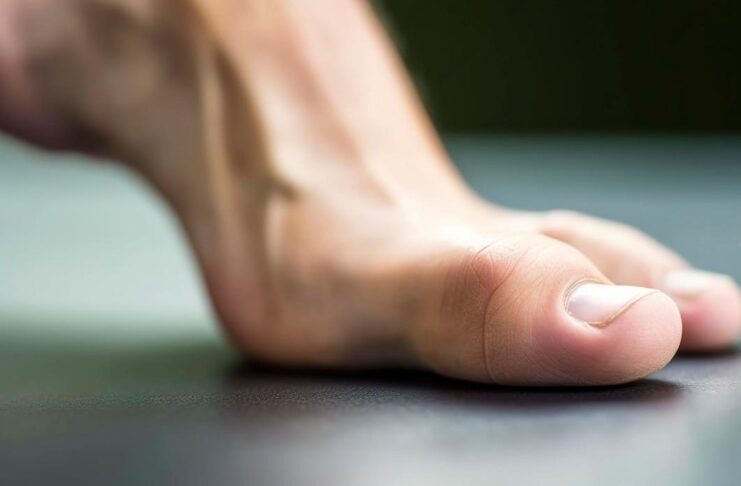A bony protrusion at the base of the big toe is one of the most prevalent symptoms of a common foot condition called hallux valgus, which is more often known as bunions. This abnormality frequently results in discomfort, irritation, and trouble locating footwear that is suitable for everyday use. Although there is some evidence that genetics have a role in the development of bunions, there are a number of things that may be done to assist lessen the likelihood of acquiring bunions. In light of this, let us investigate six strategies that have proven to be beneficial in preventing the development of bunions and promoting general foot health.
Ensure That You Wear Appropriate Footwear:
The selection of appropriate footwear is one of the most important factors in the fight against bunions. According to Karl M. Schweitzer Jr., MD, a foot and ankle surgeon at Duke Orthopaedics in Raleigh, “All of these place abnormal stress and force on the forefoot and big toe, which can lead to progressive deformity and issues with the smaller toes as well,” this condition can be made worse by wearing shoes that are too tight, too narrow, or that have high heels.
Therefore, the best way to avoid developing bunions is to wear shoes that give your toes plenty of room to wiggle around freely. Choose shoes with a low heel since they will distribute your weight more evenly over your foot. Additionally, you may want to explore using orthotic devices or shoe inserts to provide additional support and cushioning for your feet.
Keep Your Weight in Check:
In addition to wearing the wrong shoes, being overweight can strain your feet more and cause bunions. Because of this, keeping your weight at a healthy level is vital for both your overall health and for lowering the risk of developing problems that are related to your feet. This can be accomplished by adopting a diet that is balanced and by engaging in physical activity on a consistent basis. It will reduce the amount of pressure that is placed on your foot, which in turn will lessen the likelihood of bunions developing or getting worse.
Ensure You Have Proper Foot Hygiene:
Aside from this, another easy method that might be useful in preventing bunions is to ensure that your feet are always clean and well-maintained. Washing your feet on a regular basis, making sure to pat them dry completely, and applying lotion to them afterward will help you avoid skin problems and keep your feet in good overall health. Additionally, paying attention to your toenails and keeping them clipped can avoid ingrown toenails, which can lead to the development of bunions. Bunions are characterized by the prominence of the joint at the base of the big toe.
Strengthen the Muscles in Your Feet
Strengthening the muscles in your feet will help enhance the general stability of your feet and lessen the likelihood that you will develop bunions. Simple exercises like curling your toes, stretching your toes, and picking up little things with your toes are all great ways to accomplish this goal. By strengthening the muscles that support the arch of your foot, you can reduce your risk of developing bunions.
Be Aware of Your Foot Mechanics
Because bunions take a long time to grow, paying attention to your feet beginning in childhood and continuing into early adulthood is one of the most effective ways to avoid developing bunions. Pay close attention, in particular, to the manner in which you walk and the mechanics of your feet. A misaligned big toe can be caused by excessive pronation (when the body weight is placed on the outside of the foot while walking or running) or supination (when more of the body weight is placed on the inside of the foot), so it is important to avoid doing either of these things.
Consult a Foot Care specialist
It is essential that you consult a foot care specialist if you have a history of bunions in your family or if you observe any early indicators that they may be developing in you. Your foot structure can be evaluated by a podiatrist or an orthopedic specialist, who can then provide you with individualized recommendations and suggest treatments to stop bunions from getting worse. In certain instances, a doctor may recommend the use of customized orthotic devices in order to treat a patient’s unique foot concerns and stop the progression of their deformity.
The adoption of a preventative strategy that takes into account various aspects of one’s lifestyle, including the selection of appropriate footwear and the maintenance of good foot health, is essential for avoiding the development of bunions. You can significantly lower your risk of developing bunions if you make educated decisions about the footwear you wear, if you maintain a healthy weight, if you practice good foot hygiene, if you strengthen your foot muscles, if you are aware of how your foot mechanics affect your gait, if you engage in appropriate exercises, and if you consult a professional when you feel the need to do so.


